Ellen Whinnett: How fires threaten Scott Morrison’s authority
Australia’s fires aren’t just posing a threat to towns and small communities — the Morrison government is also at risk. And as flames engulf the nation, the government must do something about the elephant in the room, writes Ellen Whinnett.
Opinion
Don't miss out on the headlines from Opinion. Followed categories will be added to My News.
Australians are used to hot summers. Drought, bushfires and days above 40C.
But this summer has been extraordinary — more than five million hectares burned, at least 16 people dead nationally and several missing in Victoria, at least 1300 homes gone, the eastern seaboard choked by smoke and thousands of people trapped on beaches, driven to the ocean by flames.
And it’s only early January.
There are months left to run in the fire season, which began early in NSW when the first fires broke out in September.
As well as the threat the fires pose to towns and small communities across Australia, they also pose a threat to the Morrison Government.
There is deep concern across Australia and internationally about the extremes of weather this summer.
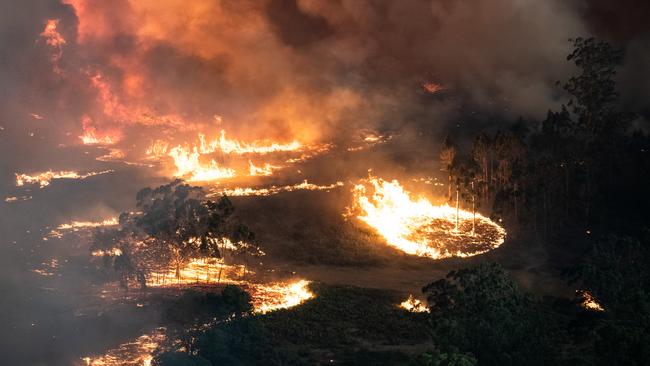
At the risk of adding another feelpinion to an already overcrowded field, it does have the feel of a tipping point, that enough is enough and the government must do something about it.
On Tuesday, Scott Morrison hit the right note when he called in the Australian Defence Force.
The decision showed the government understood the scale of the crisis and was prepared to throw everything at it.
The sight of a massive Navy ship arriving into Mallacoota on Thursday, and Army and Navy helicopters clattering about over remote towns in Gippsland, will give residents confidence that help is on its way, along with much-needed supplies.
But until then, Morrison had looked flat-footed and defensive.
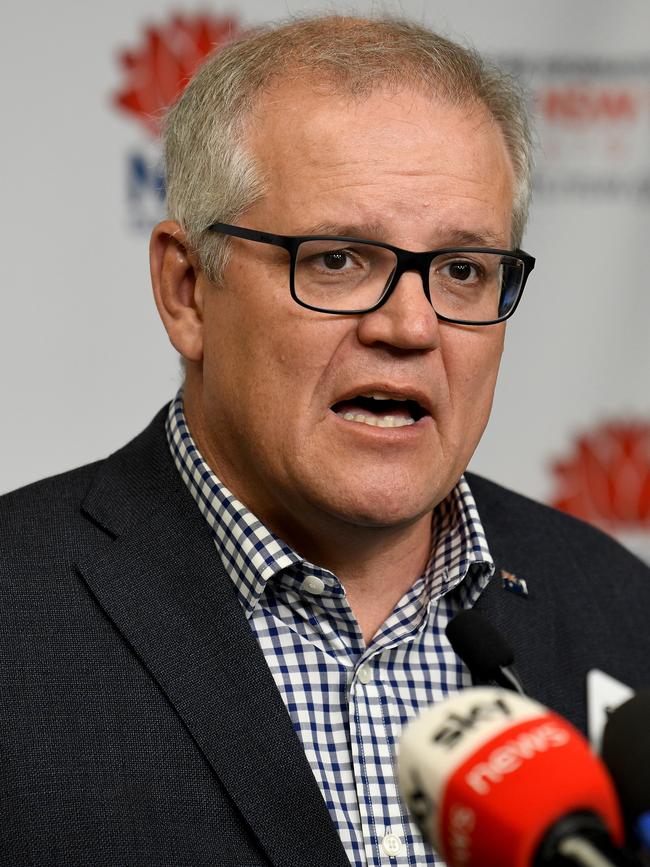
His sudden announcement last Sunday that he’d be providing one-off payments to compensate volunteer firefighters up to $6000 for the weeks and they’d spent on the fire front looked rushed and a bit panicked, despite his claims they’d been working on it for some time.
And the deal was done initially with only the (Liberal) Berejiklian government in NSW, making it look like a hasty deal cobbled together with a friendly government to get the PM out a political jam.
South Australia has since signed up and while the Labor states of Queensland and Victoria were playing silly buggers over the offer, it would be a brave government that stops its volunteer firefighters from getting $6000 in free money from Canberra when their fellow volunteers across the border can have it.
Indeed, Queensland’s Annastacia Palaszczuk has now signed up.
Then there was the ill-timed holiday Morrison took overseas with his wife and daughters.
He works hard and should be entitled to a week off.
Comparisons with former Victorian police commissioner Christine Nixon leaving her post on Black Saturday were hysterical and unfair.
But the optics were bad, as Sydneysiders continued to breathe in toxic smoke and two volunteer firefighters died. He lost a lot of political capital over it.
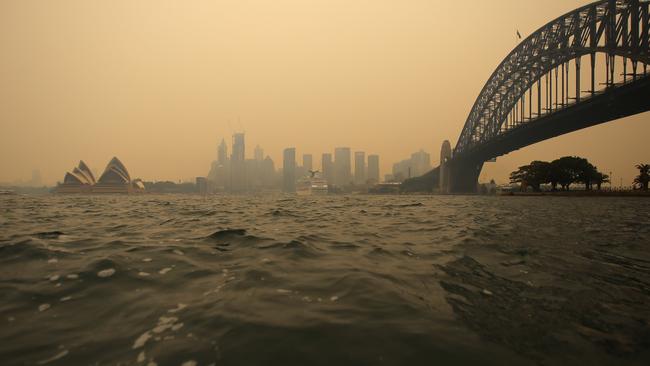
Anyway, all of this is reactive. The elephant in the room is climate change and the government’s response to it.
No political party in Australia had been able to deliver a sustainable, acceptable policy on climate change.
Morrison acknowledges human intervention is contributing to climate change. Yet formulating an energy and climate policy has been eluding political parties and leaders for years, with Rudd, Gillard, Abbott, Turnbull and Morrison (so far) all unable to legislate a long-term policy.
Since the Coalition party room killed off the National Energy Agreement, the market is in flux, unsure where to invest. The governmental response seems piecemeal, such as underwriting a new gas plant in Dandenong.
It’s almost impossible to have a sensible debate here on climate change. Thanks to the shouty types on social media, it’s become heresy to point out that Australia directly produces just 1.3 per cent of the world’s carbon emissions, so can’t unilaterally shift the dial in any meaningful way.
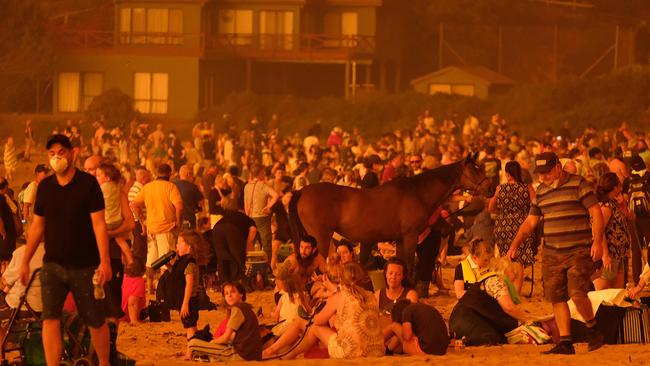
Equally, Australia, as a wealthy, developed democracy, should be showing leadership and sitting near the head of the global pack in emission reduction strategies.
Deputy Prime Minister Michael McCormack has complained about “woke capital city greenies’’ agitating about climate change when fires were burning.
But look at some of those who have identified climate change as an issue — the Reserve Bank, the Australian Defence Force, the Australian Securities and Investments Commission and the Department of Home Affairs. Not a dreadlock or home-knit jumper to be seen.
In an opinion piece published on these pages yesterday, Prime Minister Morrison said: “Australians have never been fussed about trying to impress people overseas.’’
But surely he’d prefer that the international media was not devoting thousands of words to Australia’ bushfire crisis, with photos of Sydney Harbour bathed in toxic orange smoke, our wildlife burning to death and scared people crammed on to eerie orange beaches escaping the flames.
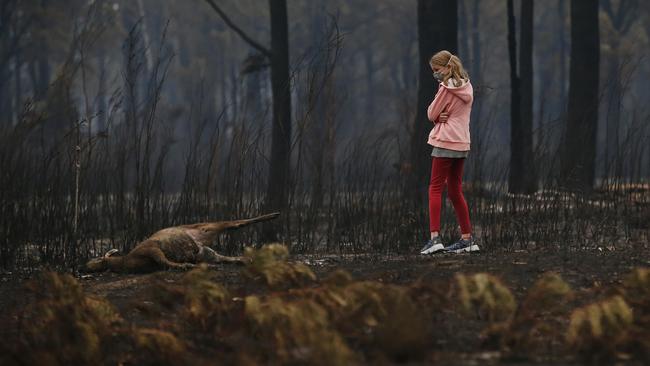
Before Christmas, the French daily Liberation took out its entire front page with a high-impact photograph of a firefighter and a burning tree and a headline which translated as “Australia an incendiary climate’’.
“Three million hectares burned, Sydney plunges into an orange mist, the out of control fires ravaging a country in the middle of a drought sound like a new alert on climate change,’’ it screamed.
Across pages two, three and four, there were more confronting photos and a picture of Morrison under a headline which read, “Prime Minister in flagrant denial’’.
Coverage such as that in the centre-left Liberation won’t move a vote in Australia, so Morrison won’t lose sleep over it.
But he should be up in the wee hours thinking about how to better protect Australia from such disasters in the first place.
— Ellen Whinnett is the Herald Sun’s national politics editor.
